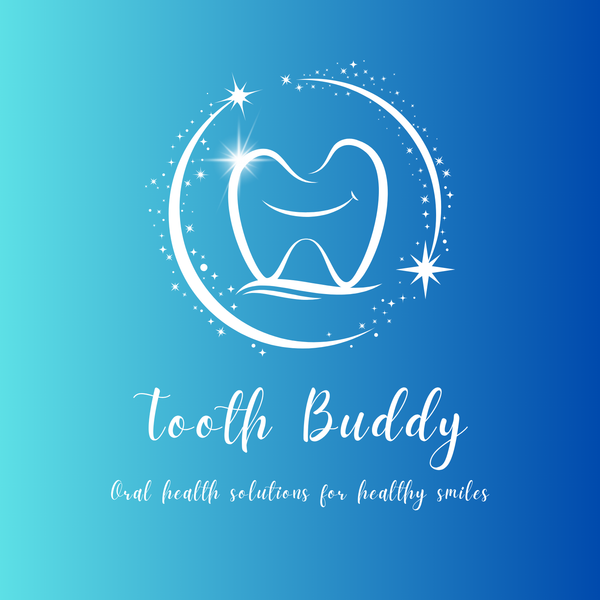
Stoptober and Oral Health: Why Now is the Perfect Time to Quit Smoking
Every October, thousands of people across the UK join the Stoptober campaign, a nationwide movement encouraging smokers to quit for 28 days. The idea is simple: if you can stop smoking for 28 days, you’re five times more likely to give up for good.
While Stoptober focuses on the overall health benefits of quitting, it’s also the perfect opportunity to shine a light on something often overlooked — the powerful connection between Stoptober and oral health.
From healthier gums to fresher breath and brighter smiles, quitting smoking has life-changing benefits for your mouth as well as your body. Let’s explore why this October could be the month you transform your oral health.
Why Smoking Affects Your Oral Health
Smoking doesn’t just harm the lungs and heart — it directly impacts the mouth. Every puff exposes your teeth, gums, and tongue to chemicals that disrupt your oral ecosystem. Over time, this leads to:
- Gum Disease
Smoking reduces blood flow to the gums, making it harder for the body to fight infection. Smokers are more than twice as likely to develop gum disease, which can eventually cause tooth loss. - Tooth Staining
Nicotine and tar quickly stain teeth yellow or brown. Many smokers feel self-conscious about their smile because of this discolouration. - Bad Breath (Halitosis)
Smoke particles linger in the mouth, throat, and lungs, leading to persistent bad breath that mouthwash alone can’t fix. - Slower Healing
Smoking slows down healing in the mouth. After a tooth extraction or dental procedure, recovery time is longer and complications are more likely. -
Oral Cancer Risk
One of the most serious risks is oral cancer. Smoking (especially combined with alcohol use) significantly increases the likelihood of developing cancers of the mouth, lips, tongue, and throat.
The Benefits of Quitting: What Happens to Your Mouth
The great news is that stopping smoking brings almost immediate improvements to your oral health. Here’s what happens when you quit:
- After 48 hours: Food tastes and smells sharper as your senses begin to recover.
- Within 2 weeks: Circulation improves, meaning more oxygen reaches the gums and tissues in your mouth.
- Within 3 months: Gum health starts to improve, reducing the risk of gum disease and tooth loss.
- Long-term: Your risk of oral cancer drops, your breath becomes fresher, and teeth gradually look brighter.
Quitting smoking isn’t just about adding years to your life — it’s about improving your quality of life, and that includes your smile.
Stoptober and Oral Health: How to Succeed
Quitting is never easy, but Stoptober offers a supportive framework to help you succeed. Here’s how you can make the most of it:
Use the NHS Stoptober App: The NHS provides a free Stoptober app that tracks your progress, sends motivational messages, and shows how much money you’ve saved since quitting.
Seek Support: Tell friends and family you’re quitting — their encouragement makes a big difference. Some people find joining a Stoptober Facebook group helps them feel less alone.
Replace the Habit: Many smokers struggle because they miss the action of smoking, not just the nicotine. Sugar-free chewing gum, mints, or even sipping water can help replace the hand-to-mouth habit while protecting your teeth.
Speak to Your Dentist: Dentists and hygienists can provide advice, recommend oral health products, and spot early signs of smoking-related problems. They can also give tips on whitening, freshening breath, and restoring your smile.
Tooth-Friendly Tips for Ex-Smokers
Once you’ve quit, here are some steps to help restore and protect your oral health:
-
Brush Twice a Day with Fluoride Toothpaste
Essential for protecting teeth weakened by smoking. A soft-bristled brush like the Curaprox 5460 can be gentle yet effective. -
Use a Tongue Cleaner
Smoking often leaves residue on the tongue. Using a copper tongue scraper can freshen breath and remove toxins. - Book a Hygienist Appointment
A professional clean can remove stains and tartar left behind from smoking. Many people find this gives them a “fresh start” for their mouth. - Stay Hydrated
Smoking dries out the mouth. Drinking water regularly keeps saliva flowing, which helps protect against tooth decay. -
Consider Whitening Options
After a period of quitting, speak to your dentist about safe whitening treatments if staining is still affecting your confidence.
The Financial Benefits
Quitting smoking doesn’t just improve health — it saves money. The average smoker in the UK spends over £3,000 a year on cigarettes. Imagine what else you could spend that on: a holiday, home improvements, or investing in your wellbeing.
By highlighting the savings on the NHS app, Stoptober makes the financial incentive clear. And when you think about dental costs saved by avoiding gum disease and tooth loss, quitting becomes even more valuable.
Linking Stoptober and Oral Health to Everyday Life
Stoptober isn’t just a campaign — it’s an opportunity to take back control of your smile. Whether you’re motivated by fresher breath, whiter teeth, or simply reducing your risk of oral cancer, quitting smoking is one of the best decisions you’ll ever make for your mouth.
If you’ve been waiting for the right moment, this is it. With support from the NHS, family, and your dental team, you have every chance of success.
Final Thoughts
Stoptober and oral health go hand in hand. By giving up smoking for 28 days, you’re not only improving your overall health but also protecting your teeth and gums for years to come.
This October, take the challenge. Give your smile the gift of health — because a brighter, fresher, smoke-free smile is something worth celebrating.
© Tooth Buddy Ltd 2025 | All rights reserved
